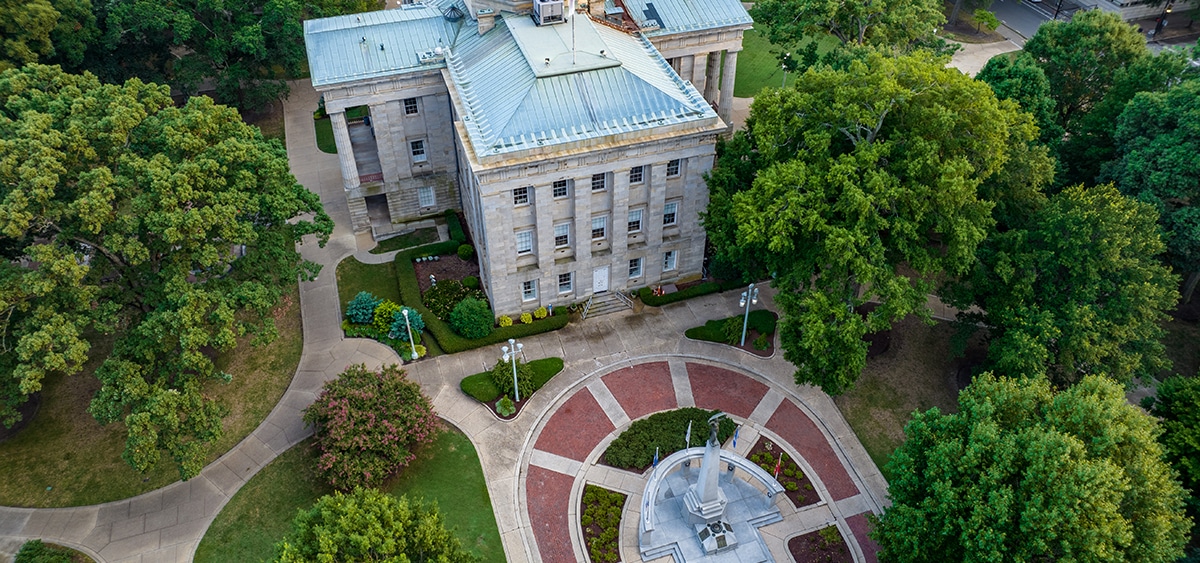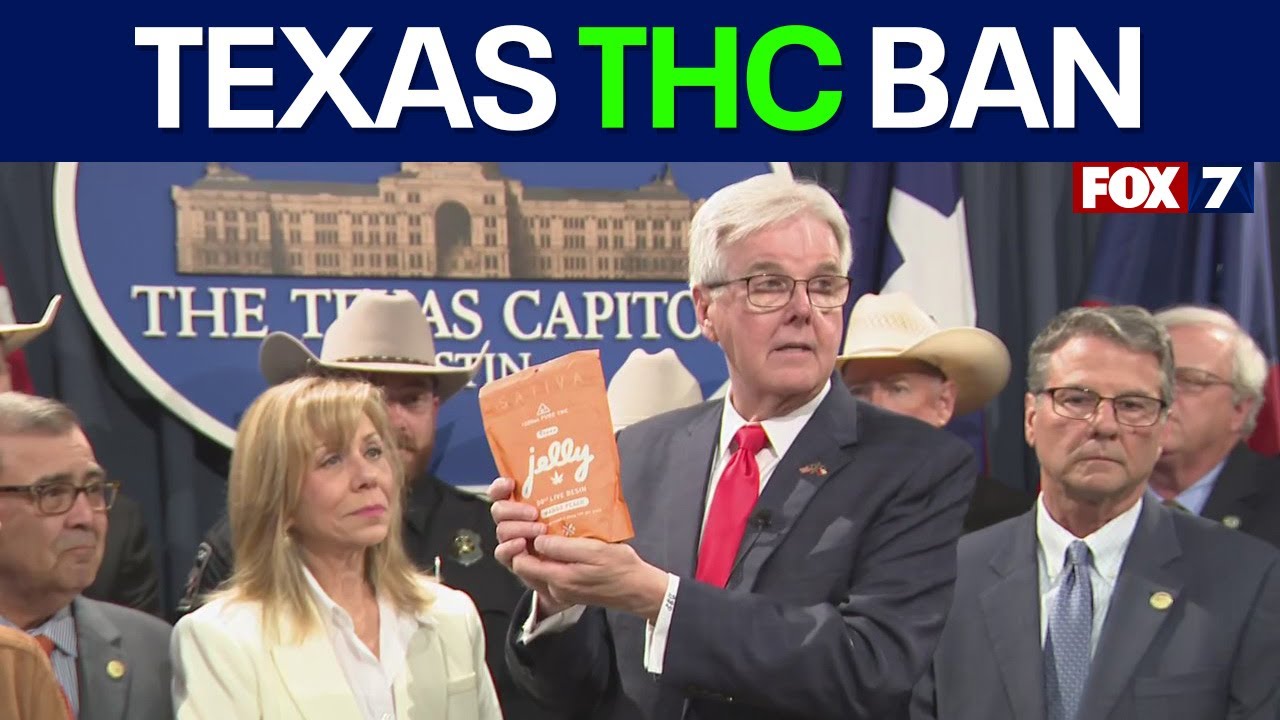featured
Marijuana And Drug Groups Press Meta About Shadowbanning And Censorship Of Content On Facebook And Instagram
Published
11 hours agoon

Nearly 100 organizations in the U.S. and abroad have signed on to an open letter to Meta—the social media behemoth behind Facebook, Instagram and Threads—condemning the company for its censorship of marijuana- and drug-related content, which can limit users’ access to health, policy reform and educational materials.
“Accounts committed to public education, legal and policy advocacy, research dissemination, and harm reduction services—including those of licensed healthcare professionals, nonprofits, and legal businesses—have been routinely shadowbanned, deplatformed, or had their posts removed with little explanation or recourse, despite operating in full compliance with local laws,” says the letter that was sent on Monday.
“This suppression is not merely an inconvenience,” the letter, which was led by Students for Sensible Drug Policy (SSDP), adds; “it is a form of digital marginalization.”
Among the dozens of other groups that have already signed on to the statement are Drug Policy Alliance (DPA), Marijuana Policy Project, NORML, Harm Reduction International and others in the U.S., Europe, Latin America, Africa and Asia.
“Censorship of science, public health, legal, and public policy discourse is not an act of neutrality; it causes harm.”
As of Monday, the petition is also open for individuals to add their names.
“So many groups we work with have been flagged for promoting get out the vote efforts, policy panels and events, information about preventing opioid overdoses, and more,” SSDP’s executive director, Kat Murti, said in a statement.
SSDP has also repeatedly faced challenges with its own social media accounts, Murti said, “greatly limiting our ability to reach our audience and hobbling our efforts to reduce harmful drug use and promote necessary policy change.”
At the beginning of this year, Meta announced that it was revising its content moderation policies and “getting rid of a number of restrictions…on topics…that are the subject of frequent political discourse and debate.” It was part of the company’s move away from intensive moderation of controversial topics like immigration and gender.
The company didn’t immediately change its practices around marijuana—continuing to block search results on its platform for terms such as “marijuana” and “cannabis” and instead displaying a notice encouraging users to report “the sale of drugs.”
While the company appears to have quietly updated that practice, the letter says that Meta continues to disproportionately and overzealously target topics such as cannabis, psychedelics and harm reduction.
The letter urges Meta to make five specific reforms to ensure access to what it calls “crucial conversations impacting the health and wellbeing of our community”:
- End discriminatory bans and shadowbans on accounts related to cannabis, psychedelics, and harm reduction when they operate within legal guidelines.
- Establish clear, transparent, and consistent content policies that distinguish between promotion of the sale of illegal substances and legitimate drug education and advocacy.
- Create a dedicated appeals and accountability process specific to drug-related content that includes community stakeholders and subject-matter experts.
- Engage in regular dialogue with the psychedelic, cannabis, and harm reduction communities to better understand our work and co-create equitable guidelines for content moderation.
“Censorship of science, public health, legal, and public policy discourse is not an act of neutrality; it causes harm,” the letter concludes, noting the increasing scientific evidence for the effectiveness of cannabis and psychedelic therapies. “As the cultural and legal landscapes around these issues evolve, so too must your policies.”
SSDP’s Murti said the group alerted Meta to obstacles caused by the company’s censorship more than a year ago, but that it is “continuing to see members of our community be deprived of access to online fundraising tools and digital advertising.”
Groups have also been “denied the opportunity to livestream panels and other events” and had posts about science, health and public policy “be artificially limited in reach,” she said. In some cases, Meta has also deactivated accounts.
While many platforms have policies against the illegal sale of drugs or require age-gating for content around controlled substances, critics say Meta’s filtering has often been overbroad.
SSDP asserted in a press release on Monday, for example, that “cannabis and psychedelic-related content, as well as public health information about drug checking and lifesaving naloxone, is backed by education, research, and blossoming legislative reform, yet Meta’s moderation policies fail to distinguish between illegal activity and legal, evidence-based content meant to educate and support communities.”
It’s unclear when Meta may have enacted the recent change to search filtering, nor has the company said whether other changes are forthcoming. Meta and Facebook press contacts did not responded to emails from Marijuana Moment sent on Friday.
Morgan Fox, political director at NORML, said last week that he hoped the search issue had been fixed for good.
“I hope these apparent changes are permanent and pervasive, and not just a temporary fix with limited scope—which we have seen in the past,” he wrote in an email to Marijuana Moment. “Without structural changes to content moderation and a clear process for addressing instances of inappropriate censorship in a more systemic manner, advocates and educators are going to have to remain vigilant to ensure that social media platform users can continue to effectively access their information.”
It’s an issue the legal cannabis industry has long grappled with. Fox noted in an email on Monday that he first started a petition on the issue in 2018 on behalf of the National Cannabis Industry Association (NCIA).
“It looked like the issue had been resolved for a while,” he said, “but it was only temporary.”
One cannabis-focused content creator who’s called out Meta in the past is cartoonist Brian “Box” Brown, who’s previously complained to Marijuana Moment that the company has flagged his posts, limited his accounts’ visibility and “killed my reach and growth.”
“My mind was boggled,” he said earlier this year. “My comic strip thats frankly TOO wonky about policy is getting flagged for selling drugs.”
In an email last about the search function, Brown said he’s picked up on a shift in Meta’s handling of his and others’ content.
“It’s weird,” he said. “I’m not even totally sure what’s happened. *Something* has changed. Stuff isn’t getting suppressed in the way it was before. But at the same time, it kinda is.”
Unlike in recent months, “I’m not getting warnings every day,” the cartoonist continued, but some posts still seem to get throttled.” He noted that other accounts, such as “a bunch of hashmakers and other influencers” have moved to other platforms after Meta “nuked” their accounts.
“It’s kind of a mixed bag,” he said, adding that he’s going stop censoring his own content—which he’d begun doing to avoid being flagged by the company’s algorithms—and see what happens going forward.
Ahead of this past holiday season, vape device manufacturer Puffco similarly complained about Instagram and parent company Meta for what it described as an overly aggressive campaign to flag and remove cannabis-related content. A video from the company asserted that Instagram’s policing of cannabis posts by brands and individuals effectively stifles efforts at community building among veterans, medical marijuana patients and legal adult-use consumers.
“The world didn’t want us, so we made a safe space for our community on Instagram where we could just be ourselves and share what we love,” the video said. “Isn’t that the point of this place?”
Despite more and more states having legalized and regulated marijuana for adults, social media companies have regularly flagged cannabis-related content as violations of their terms of service. The practice has led to suspensions of accounts belonging to state-regulated cannabis brands, informational websites and individual content creators, who now often create backup accounts to avoid the loss of a key line of communication to thousands of followers.
In 2018, concerns arose that Facebook was “shadowbanning” marijuana pages, including those of state cannabis regulatory agencies, by blocking them from search results. An internal presentation at the company the next year noted that it was considering loosening cannabis restrictions, but many have continued to run into problems
In July 2023, Meta announced that it had updated its cannabis advertising policy to permit the promotion of some non-ingestible CBD products and also loosen restrictions on hemp ads. It said businesses could begin promoting the sale of CBD if they receive written approval from Meta and if the products are certified with the payment compliance company Legitscript and comply with local laws. Ads also could not target people under 18.
“We want people to continue to discover and learn about new products and services on our technologies,” Meta said. However, it added that “advertisers will continue to be prohibited from running ads that promote THC products or cannabis products containing related psychoactive components.”
Earlier that year, Meta faced criticism over a feature of its microblogging app, Threads, for prompting users with a “get help” message about federal substance misuse resources if they searched for “marijuana,” various psychedelics and other controlled substances. Meanwhile, alcohol- and tobacco-related searches were exempt from the prompt. The feature no longer appears to be in place.
Twitter, now known as X, had a similar practice in place in 2020, cautioning users about “marijuana” searches as part of a partnership with SAMHSA. Alcohol and tobacco were excluded from the search restriction. But in late 2022, after being acquired by Elon Musk, Twitter suspended that practice.
Also, Twitter since updated its cannabis advertising policy, aiming to give cannabis businesses that are “certified advertisers” the ability to feature “packaged” cannabis products in the ad creative that’s promoted on the social media site.
Google, for its part, updated its policy in January 2023, making it so companies can promote Food and Drug Administration- (FDA) approved drugs containing CBD, as well as topical CBD products with no more than 0.3 percent THC.
Video game streaming company Twitch, meanwhile, updated its branding policy for streamers, prohibiting promotions of marijuana businesses and products while explicitly allowing alcohol partnerships. Twitch had previously clarified rules in a way that was inclusive of cannabis—exempting marijuana-related references from the list of banned usernames, just as it does for alcohol and tobacco.
In an update to Apple’s iPhone software that was instituted in 2022, users were given an option to track medications and learn about possible drug interactions with other substances—including marijuana.
In 2021, Apple ended its policy of restricting cannabis companies from conducting business on its App store. The marijuana delivery service Eaze subsequently announced that consumers were able to shop and pay for products on its iPhone app for the first time.
In contrast to Apple, Google’s Android app hub updated its policy in 2019 to explicitly prohibit programs that connect users with cannabis, no matter whether it is legal in the jurisdiction where the user lives.
In 2022, New York marijuana regulators asked the social media app TikTok to end its ban on advertising that involves the word “cannabis” as they worked to promote public education on the state’s move to legalize.
Read the full SSDP sign-on letter to Meta below:
Snoop Dogg Expands His Cannabis Brand Again, With New THCA Hemp Product Sales Website

Author: mscannabiz.com
MScannaBIZ for all you Mississippi Cannabis News and Information.
You may like
-


North Carolina Senators Advance Hemp THC Restrictions
-


Texas Military Veterans Say Potential Ban On Hemp-Derived THC Could Drive Them Back To Opioids Or The Illicit Marijuana Market
-


Fluence Debuts SPYDR 3: Pioneering Fixture Upgrades Output and Efficiency for Cannabis Growers
-


Maine Credit Union Dropping Medical Cannabis Caregiver Accounts
-


Iowa Lawmaker Surprised By Governor’s ‘Unexpected’ Veto Of Psilocybin Bill
-


How To Avoid Post Cannabis Grogginess
featured
North Carolina Senators Advance Hemp THC Restrictions
Published
4 minutes agoon
June 18, 2025
A new North Carolina proposal seeking to ban synthetic hemp products and limit the sale of THC-infused beverages and gummies to adults aged 21 and older sailed through two Senate committees on Tuesday, WRAL reports. The bill was passed with bipartisan support and moves next to the Senate Judiciary Committee.
If adopted as written, it would require businesses selling hemp-derived cannabinoid products to be licensed by the state. The proposal would also set THC limits, establish product testing requirements, and prohibit packaging designed to appeal to children, the report said.
Attorney General Jeff Jackson (D) said he supports the measure, calling the reforms “long overdue,” particularly regarding the products’ availability to children.
“This bill was written with public good front and center, and we’re going to make sure that what is being sold in our communities have no toxins, no synthetics and keep these products out of the possession of minors.” — State Sen. Amy Galey (R), via WRAL
Meanwhile, North Carolina Gov. Josh Stein (D) recently expressed support for cannabis decriminalization and announced he was forming a new advisory council on cannabis policy.
Get daily cannabis business news updates. Subscribe
Have an additional perspective to share? Send us a message to let us know, and if your comment is chosen by our editors it could be featured here.
Perspective to add? Suggest a revision or submit commentary for review using the form below.
Ganjapreneur is made possible by our partners:

Author: mscannabiz.com
MScannaBIZ for all you Mississippi Cannabis News and Information.
featured
Texas Military Veterans Say Potential Ban On Hemp-Derived THC Could Drive Them Back To Opioids Or The Illicit Marijuana Market
Published
1 hour agoon
June 18, 2025
“The doctor assured me he could prescribe me enough… I said, ‘Sure, you can, but I can’t afford it.’”
By Hayden Betts and Stephen Simpson, The Texas Tribune
Wesley Barnes, 55, a Gulf War veteran, has battled chronic pain and PTSD since his exposure to sarin gas overseas. After leaving the Army in 1994, he spent years dependent on prescribed opiates.
“There’s really nothing at the VA to help with pain or anxiety that isn’t addictive,” said Barnes from his home in Onalaska, about 30 miles east of Huntsville. “I was a zombie on a couch.”
Barnes qualified for Texas’s medical marijuana program, also called the Compassionate Use Program, shortly after its expansion in 2021. He paid $600 in doctor’s visits to sign up, and he paid another $600 to $800 a month to buy legal medical cannabis.
“The doctor assured me he could prescribe me enough,” Barnes recalled. “I said, ‘Sure, you can, but I can’t afford it.’”
Barnes briefly turned to purchasing cannabis illegally before discovering he could treat his pain with legal hemp products. He could buy for $40 what cost him $220 on the street.
“Don’t make me go back to the black market,” Barnes said.
Now, as Texas looks to ban hemp products while expanding the state’s medical marijuana program, some chronic pain patients like Barnes say they do not plan to participate in the Compassionate Use Program even if retail THC products become illegal. Their concerns center on the high cost, dosing inflexibility and civil rights issues raised by the legal alternative.
Gov. Greg Abbott’s (R) veto is the last remaining hurdle for a bill that would ban all products containing tetrahydrocannabinol, or THC, likely spelling the end for the state’s short-lived hemp industry.
Senate Bill 3, which prohibits the possession of consumable hemp products that contain any synthetic cannabinoid, often known as delta-8, was a priority this legislative session for Lt. Gov. Dan Patrick (R), who often denounced the effects of the drug on children. Patrick did not respond to The Texas Tribune’s requests for a comment.
Hemp users, retailers, growers and some Republicans have been urging Abbott to axe the bill. Asked whether Abbott would veto SB 3 by the June 22 deadline, his press secretary Andrew Mahaleris said the governor is still reviewing all pending legislation.
As a concession of sorts to veterans and THC users with chronic conditions, House Bill 46 also passed this legislative session, expanding the types of products, number of dispensaries and qualifying health conditions for the medical marijuana program, as well as reducing some of the costly regulations on dispensaries.
Jervonne Singletary, a spokesperson for Austin medical marijuana company Goodblend, said the new rules should translate into lower prices for customers.
“With any limited program at the start, it’s expensive, and then when it slowly expands overtime, and more locations come online, and more operators come online, more cultivation spaces come online, then naturally the prices of the medicine come down,” she said.
Accessibility of hemp-derived THC
William Macbrohn, a 57-year-old Air Force veteran living in San Antonio, worked as a warehouse manager at Habitat for Humanity until psoriatic arthritis prevented him from doing his job.
“I’m in pain 24/7. On a good day, I’m at a five or a six. I mow the lawn and I’m done for two days,” Macbrohn said.
Macbrohn only uses consumable hemp products at night to help ease his pain enough to fall asleep. He found them after years of searching for a product that he believed was neither physically addictive nor had unpredictable mental effects like Ambien.
“Finally, all this time that I’ve been suffering, I found something that’ll help that’s not a synthetic chemical…and they’re going to go and take it away,” he said.
Macbrohn qualifies for the state’s Compassionate Use Program but has avoided signing up for it because he regularly carries a concealed gun. He believes carrying a weapon and having a medical marijuana card would be illegal under federal law, though not Texas law. “I don’t want to take that chance,” said Macbrohn, who believes concealed-carrying and using consumable hemp while it’s still legal is permissible.
The issue of the federal legality of both using state-level legal marijuana and owning a gun remains a gray area nationwide. The 2021 case of an El Paso woman convicted of federal crimes for both owning firearms and illegally possessing marijuana was overturned by the Fifth Circuit Court of Appeals in January as “inconsistent with our history and tradition of firearms regulations.” However, the U.S. Department of Justice has appealed cases with similar facts to the Supreme Court, which has yet to rule on the issue broadly.
Macbrohn’s commitment to abiding by the law extends to the potential hemp ban. Possessing consumable hemp products under the bill would be an expungeable Class C misdemeanor punishable with a fine up to $500 and no jail time.
“If they ban it, then I guess I’m done,” he said.
For the time being, Macbrohn is stockpiling consumable hemp products.
Donna Maniscalco, a 62-year-old Navy veteran living in Lometa, served nearly 19 years as a chaplain’s assistant before being discharged for medical reasons in 2009. Stationed for a time in Keflavik, Iceland, where she was repeatedly “picked up by the wind and just literally thrown,” she developed spinal injuries that surgeons have declined to operate on.
Maniscalco says that consumable hemp products allow her to maintain a normal lifestyle and to garden, which helps her mental health. Without them, she’d “probably be in bed all day.”
Maniscalco, like Macbrohn, is also concerned that putting her name on a list could infringe on her right to carry a firearm.
Maniscalco said that if the ban goes into effect she may move in with her parents who live in upstate New York where cannabis and consumable hemp products are widely legal and available.
“I don’t want to go,” she said, “I have friends here. I have two sons and a daughter here. I love the long growing season. I love Texas.”
Barnes said among the allures of hemp products is that they come in different strains that create an ultra-personalized treatment option. Meanwhile, with the medical marijuana program, doctors are prohibited from prescribing cannabis doses higher than 10 milligrams at a time, forcing “the price higher for someone who has more pain,” Barnes said.
Can medical marijuana expand quickly enough?
HB 46 expands the state’s medical marijuana program by including more popular products such as prescribed inhalers and vaping devices and adding nine dispensers to bring the total to 12. It also adds traumatic brain injuries, chronic pain, Crohn’s disease and terminal illnesses to the list of qualifying conditions.
But the bill’s biggest change that could lower prices for consumers will be allowing medical marijuana distributors to store their products in various satellite locations instead of having to drive across the state to return the product to the original dispensary every day.
This has made products more expensive and limited where the medical marijuana program can reach.
Singletary said prices should decline now that medical marijuana companies can stock products overnight in designated locations.
But, she clarified she doesn’t expect medical marijuana to be as accessible as hemp immediately. More than 8,000 retailers in Texas now sell hemp-derived THC products. Before starting the expansion process, the medical marijuana industry will need a few months after the law goes into effect on September 1 to clarify some of the technical details of the new legislation, Singletary said.
“Hemp exploded overnight,” she said, “but we are going to have measured growth.”
While hemp might become illegal in Texas, it still will be federally legal, meaning mail-order hemp products will still be an option for some, but Singletary said she doesn’t feel the need to compete with this industry.
“There are millions of Texans who want quality, regulated products in the state and don’t want to trust mail-order hemp, so the folks who feel like that is the option for them, I respect their decision, I truly do, but those who want doctor prescribed cannabis that’s produced in the state that is regulated, tested, and validated, then come to our program,” she said.
Regulation versus a ban
Since the wave of recreational marijuana legalization began with Colorado and Washington in 2012, large scale studies have repeatedly found that marijuana use in general increases when cannabis is legal. Other studies have shown that use decreases when cannabis becomes criminalized, suggesting Texas will likely follow a similar path despite some users saying they plan on circumventing the THC ban.
For more than a century, government officials and public health experts have debated the efficacy of cannabis prohibition in achieving a variety of aims.
Civil rights attorneys argue that drug criminalization comes with a civil liberties cost. A 2020 ACLU report found that “more than six million [marijuana related] arrests occurred between 2010 and 2018” and that “Black people are 3.64 times more likely than white people to be arrested for marijuana possession, notwithstanding comparable usage rates.”
Kirsten Budwine, a policy attorney at the Texas Civil Rights Project, said, “This is not just bad policy, but a step backward into the failed logic of the war on drugs… What it really does is turn a regulatory issue into a criminal one.”
Decades of studies affirm the utility of cannabinoids in treating chronic pain. A 2017 review of over 10,000 studies found “substantial evidence” that cannabinoids are good for treating chronic pain and “moderate evidence” that extensive cannabinoid use impairs memory and attention.
Medical experts agree that incidences of cannabis-induced psychosis like the ones Patrick has referenced in press conferences, do occur, especially when exposing high-THC products to a broad population without safeguards.

Last year, the National Academies of Science, Engineering and Medicine responded to growing concerns about the expansion of cannabis use in the country by calling for unregulated hemp-derived products to be “regulated in the same manner as other intoxicating cannabis products” at the federal level. The report also called for public education campaigns about the risks of cannabis and for states to prevent underaged people from buying the drug, rather than outright policy bans of THC products or the criminalization of cannabis possession.
Users and the hemp industry had told Texas lawmakers that they would welcome regulations to the hemp industry to address those concerns, rather than a complete ban.
Barnes fears that the new era of illegal hemp could create even more dangers than before.
“Do they want me to have to go back to some guy on the street corner and hope it doesn’t have fentanyl in it? Or get shot for 200 bucks or whatever?” he said.
This article originally appeared in The Texas Tribune at https://www.texastribune.org/2025/06/17/texas-thc-hemp-medical-marijuana-ban-veterans-pain/.
The Texas Tribune is a member-supported, nonpartisan newsroom informing and engaging Texans on state politics and policy. Learn more at texastribune.org.
Photo courtesy of Kimzy Nanney.

Author: mscannabiz.com
MScannaBIZ for all you Mississippi Cannabis News and Information.
featured
Fluence Debuts SPYDR 3: Pioneering Fixture Upgrades Output and Efficiency for Cannabis Growers
Published
2 hours agoon
June 18, 2025
[PRESS RELEASE] – AUSTIN, Texas & EINDHOVEN, Netherlands, June 18, 2025 – Fluence, a leading global provider of energy-efficient LED lighting solutions for commercial cannabis production, announced SPYDR 3, the latest generation of the cannabis industry’s pioneering fixture.
SPYDR 3 features the line’s signature design, now with five wattage options that provide exceptional flexibility to growers. With output up to 2,260 μmol/s, efficiency up to 3.0 μmol/J and new spectrum options—including Fluence’s BW4a, BW45 and BW5—SPYDR 3 optimizes energy savings while enabling growers to hit desired light levels.
“Ten years ago, Fluence introduced a transformative luminaire to the cannabis industry that revolutionized indoor cultivation,” said Michiel van Dam, president of Agricultural Lighting at Signify. “Today, SPYDR is the technology of choice for growers seeking maximum yield and quality at the greatest efficiencies in their facilities. With enhanced wattage options, additional research-backed spectra, and versatile sizing, we’re not just meeting growers’ needs—we’re delivering them the lighting technology they need to dominate in their markets.”
The third-generation SPYDR also features an integrated power supply and sealed lens design, providing a cleanable barrier lens to protect it from the cultivation environment. The fixture’s high-light intensity options and substantial efficiencies also support growers seeking rebate incentives.
Learn more about SPYDR 3 or contact the Fluence team about implementing SPYDR at your facility here. For more information on Fluence, visit www.fluence-led.com.

Author: mscannabiz.com
MScannaBIZ for all you Mississippi Cannabis News and Information.

North Carolina Senators Advance Hemp THC Restrictions

Texas Military Veterans Say Potential Ban On Hemp-Derived THC Could Drive Them Back To Opioids Or The Illicit Marijuana Market

Fluence Debuts SPYDR 3: Pioneering Fixture Upgrades Output and Efficiency for Cannabis Growers

Maine Credit Union Dropping Medical Cannabis Caregiver Accounts

Iowa Lawmaker Surprised By Governor’s ‘Unexpected’ Veto Of Psilocybin Bill

How To Avoid Post Cannabis Grogginess

Minnesota Adult-Use Dispensary Island Peži Celebrates 1st Anniversary

Cannabis consumers unhappy with Trump, poll shows (Newsletter: June 18, 2025)

Marijuana And Drug Groups Press Meta About Shadowbanning And Censorship Of Content On Facebook And Instagram

DEA Museum Highlights Pen That Nixon Used To Sign Modern War On Drugs Into Law

CBD From Cannabis Could Help Reduce Alcohol Binge Drinking, Study Shows

Gen Z Is Ditching Relationship Labels While Millennials

Florida Lawmakers Pass Bill To Revoke Medical Marijuana Cards From People With Drug Convictions, Sending It To DeSantis’s Desk

North Carolina Lawmakers Advance Bill To Regulate Hemp THC Products And Restrict Kratom

Alaska Activists Launch Campaign To Put Psychedelics Legalization Measure On 2026 Ballot

Best dab rigs of 2025 by Leafly

High Times Magazine Acquired for $3.5M by RAW Rolling Papers Owner
Connecticut Man Busted with $8.5M Worth of Shrooms

Mississippi Choctaws to Elect Tribal Council Representatives

Delaware Lawmaker Withdraws Bill To Regulate Hemp-Derived THC Drinks

Mississippi AG Limits Sale of Consumable Hemp Products

Dallas-Area Officers Raid 3 Licensed Hemp Distribution Warehouses in ‘Enforcement Overreach’
The Counterculture Giant Reclaims Its Roots

Study: Daily Cannabis Consumers Exhibit Few Changes in Simulated Driving Performance Compared to Controls

Alert: Department of Cannabis Control updates data dashboards with full data for 2023

Connecticut Appoints The US’s First Cannabis Ombudsperson – Yes there is a pun in there and I’m Sure Erin Kirk Is Going To Hear It More Than Once!

5 best CBD creams of 2024 by Leafly

Free delta-9 gummies from Bay Smokes

EU initiative begins bid to open access to psychedelic therapies
New Study Analyzes the Effects of THCV, CBD on Weight Loss

Mississippi city official pleads guilty to selling fake CBD products

Curaleaf Start Process Of Getting Their Claws Into The UK’s National Health System – With Former MP (Resigned Today 30/5/24) As The Front Man

May 2024 Leafly HighLight: Pink Runtz strain

Horn Lake denies cannabis dispensary request to allow sale of drug paraphernalia and Sunday sales | News

5 best autoflower seed banks of 2024 by Leafly

Discover New York’s dankest cannabis brands [September 2024]

Press Release: CANNRA Calls for Farm Bill to Clarify Existing State Authority to Regulate Hemp Products

Local medical cannabis dispensary reacts to MSDH pulling Rapid Analytics License – WLBT

Nevada CCB to Accept Applications for Cannabis Establishments in White Pine County – “Only one cultivation and one production license will be awarded in White Pine County”

The Daily Hit: October 2, 2024

6 best CBD gummies of 2024 by Leafly

5 best THC drinks of 2024 by Leafly

5 best delta-9 THC gummies of 2024 by Leafly

Weekly Update: Monday, May 13, 2024 including, New Guide for Renewals & May Board meeting application deadline

People In This State Googled ‘Medical Marijuana’ The Most, Study Shows

PRESS RELEASE : Justice Department Submits Proposed Regulation to Reschedule Marijuana

Press Release: May 9, STIIIZY and Healing Urban Barrios hosted an Expungement Clinic & Second Chance Resource Fair

Thailand: Pro-cannabis advocates rally ahead of the government’s plan to recriminalize the plant
Trending
-

 California Cannabis Updates1 year ago
California Cannabis Updates1 year agoAlert: Department of Cannabis Control updates data dashboards with full data for 2023
-

 Breaking News1 year ago
Breaking News1 year agoConnecticut Appoints The US’s First Cannabis Ombudsperson – Yes there is a pun in there and I’m Sure Erin Kirk Is Going To Hear It More Than Once!
-

 best list11 months ago
best list11 months ago5 best CBD creams of 2024 by Leafly
-

 Bay Smokes12 months ago
Bay Smokes12 months agoFree delta-9 gummies from Bay Smokes
-

 Business9 months ago
Business9 months agoEU initiative begins bid to open access to psychedelic therapies
-

 cbd1 year ago
cbd1 year agoNew Study Analyzes the Effects of THCV, CBD on Weight Loss
-

 Mississippi Cannabis News1 year ago
Mississippi Cannabis News1 year agoMississippi city official pleads guilty to selling fake CBD products
-

 Breaking News1 year ago
Breaking News1 year agoCuraleaf Start Process Of Getting Their Claws Into The UK’s National Health System – With Former MP (Resigned Today 30/5/24) As The Front Man



